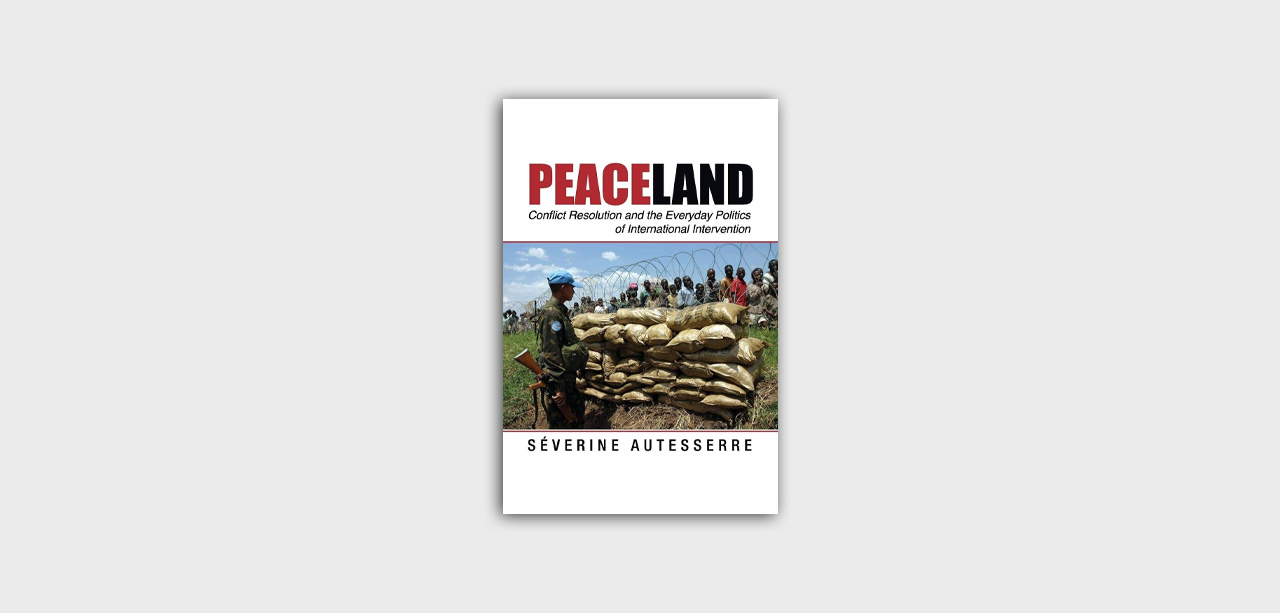Peaceland: Conflict Resolution and the Everyday Politics of International Intervention

In 2010 Séverine Autesserre, Assistant Professor at Barnard College and Columbia University, achieved remarkable notoriety for her first book, The Trouble with the Congo: Local Violence and the Failure of International Peacebuilding. Drawing on unparalleled original data derived from hundreds of field interviews and many years working as a post-conflict intervener, Autesserre presented a contextually radical explanation for why United Nations (UN) missions, particularly in the Democratic Republic of the Congo, have failed to end conflict and seed development. In her words, “bottom-up conflict precipitated considerable violence … and it became increasingly more influential during the transition [from pre to post-conflict status].” At issue, she argued, was the United Nations’ preclusion of acting on that violence and the role of organizational culture in focusing on top-down causes and solutions.
Para seguir leyendo descarga el PDF
Autor: Séverine Autesserre
Editorial: Cambridge University Press
Fecha de publicación: Mayo 2014
